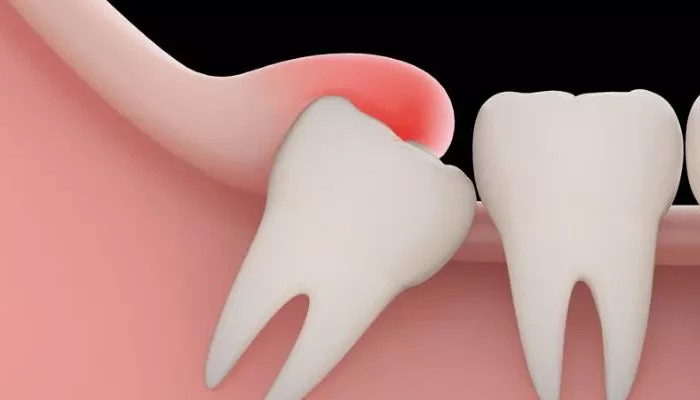Wisdom teeth, also known as third molars, are the last teeth to erupt in the human mouth. They usually appear between the ages of 17 and 25. While some people may experience no issues with their wisdom teeth, others may face a range of dental problems due to their eruption. Keeping wisdom teeth can lead to various outcomes, depending on the individual’s oral health and the position of the wisdom teeth.
Potential Issues with Keeping Wisdom Teeth
When wisdom teeth erupt, they often do not have enough space to fully emerge in the oral cavity. This can lead to a condition called impaction, where the tooth is partially or completely trapped within the jawbone or gum tissue. Impacted wisdom teeth can cause several dental problems, including:
Pain and Discomfort: Impacted wisdom teeth can cause pain, swelling, and discomfort in the jaw and surrounding teeth.
This can interfere with daily activities and make it difficult to eat or sleep.
Infection: Impacted wisdom teeth can become infected, leading to a condition called pericoronitis. Symptoms of pericoronitis include pain, swelling, redness, and bleeding of the gums surrounding the wisdom tooth. Left untreated, this infection can spread to other parts of the body.
Damage to Adjacent Teeth: Impacted wisdom teeth can push against adjacent teeth, causing them to shift or become crowded. This can affect the alignment of the teeth and bite, leading to orthodontic issues.
Cysts and Tumors: In rare cases, impacted wisdom teeth can lead to the formation of cysts or tumors in the jawbone.
These growths can cause pain, swelling, and damage to surrounding teeth and bone.
Benefits of Keeping Wisdom Teeth
Despite the potential issues associated with keeping wisdom teeth, there are also some benefits to retaining them. These include:
Natural Teeth: Keeping wisdom teeth means retaining natural teeth, which are generally stronger and more durable than artificial teeth.
Cost Savings: Removing wisdom teeth can be costly, especially if the procedure is complex or requires additional treatments such as bone grafting or sinus lifts. Keeping wisdom teeth can save patients money in the long run.
Avoidance of Surgical Risks: Surgical removal of wisdom teeth, especially impacted ones, can involve risks such as bleeding, infection, and nerve damage. Keeping wisdom teeth avoids these surgical risks.
Factors to Consider When Deciding to Keep Wisdom Teeth
When deciding whether to keep wisdom teeth, patients should consider several factors, including:
Position of the Wisdom Teeth: The position of the wisdom teeth in the jawbone is a crucial factor in determining whether they should be kept or removed. Wisdom teeth that are properly aligned and have enough space to erupt fully are less likely to cause problems and may be safe to keep.
Oral Health and Hygiene: Patients with good oral health and hygiene habits are more likely to be able to keep their wisdom teeth without experiencing significant issues. Regular dental check-ups and cleanings are essential for maintaining oral health and preventing problems with wisdom teeth.
Age and Overall Health: Younger patients with good overall health may be more likely to tolerate the surgical removal of wisdom teeth. Older patients or those with certain medical conditions may face higher risks associated with surgery and may be better suited to keeping their wisdom teeth if they are not causing significant problems.
Symptoms and Signs: Patients who experience pain, swelling, or other symptoms related to their wisdom teeth should seek professional dental advice. Depending on the severity of the symptoms, removal of the wisdom teeth may be recommended to alleviate discomfort and prevent further complications.
Monitoring and Maintenance of Wisdom Teeth
If patients decide to keep their wisdom teeth, it is essential to monitor and maintain their oral health. Regular dental check-ups and cleanings are necessary to detect and treat any potential problems early. Patients should also practice good oral hygiene habits, including brushing and flossing regularly and avoiding sugary foods and drinks.
In some cases, patients may need to undergo periodic x-rays or other imaging tests to monitor the position and health of their wisdom teeth. This can help detect any changes or problems that may require intervention.
Conclusion
Keeping wisdom teeth can lead to various outcomes, depending on the individual’s oral health and the position of the wisdom teeth. While some people may experience no issues with their wisdom teeth, others may face a range of dental problems due to their eruption. It is essential for patients to consult with a dental professional to assess their individual situation and determine the best course of action. Regular dental check-ups and good oral hygiene habits are crucial for maintaining oral health and preventing problems with wisdom teeth.
Related topics:

